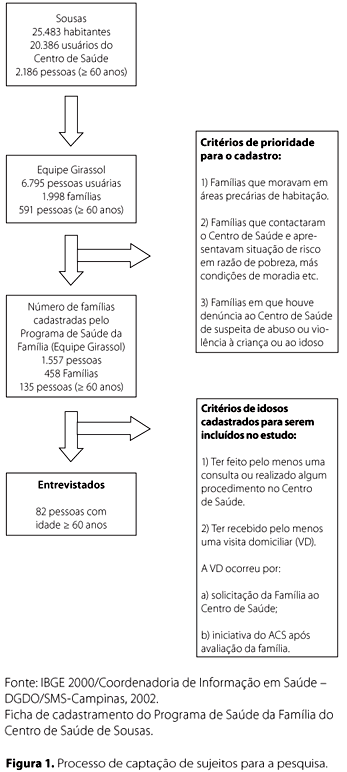OBJETIVE: To evaluate the relations between dimensions of the socio-cultural life, such social support network, religion, mental health and the Quality of Life (QL) in a group of elderly people from the Family Health Program (FHP). METHODS: This study evaluated a sample of 82 elderly subjects (aged 60 or older), registered in a (FHP, and described the profile of physical and mental health, the functional capability and the QL, as well as demographic factors, socioeconomic and cultural associates to the dimensions. The instruments had been used: a sociodemographic schedule with detailed cultural, family and religion variables, MINI, WHOQOL-bref, and Barthel Index. RESULTS: Of the 82 subjects, 47 (57%) they were women and 35 (43%) men, being that 42 (51%) had age of 60 the 69 years and 40 (49%) 70 years or more. Through multivariable models, it was identified that the presence of mental disorder associates to only live it or with just one person. Poor QL was associated with not having a pension and having taken benzodiazepine in the last year. The religion showed to important dimension associate to the QV; In all domains of WHOQOL-bref, those who identified themselves as Protestant/Evangelicals showed worse scores. CONCLUSIONS: the present study it evidences that aged with less formal education and income, they tend to have QL and health worse.
Family health; elderly; religion




